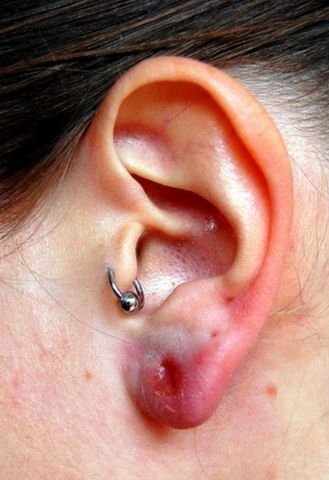Identifying and Managing Nickel Allergy
Diagnosis Process A physician can typically pinpoint a nickel allergy through the skin’s response and any recent contact with potential nickel sources. If the rash’s origin is unclear, a patch test may be suggested, possibly by an allergist or dermatologist.
Patch Test Explained This test involves applying trace amounts of allergens, including nickel, to the skin, which are then covered. After two days, the patches are removed. A reaction indicates a nickel allergy, but due to the allergens’ low concentration, the test is safe for all, even those with severe allergies.
Treatment Overview Avoiding nickel is the primary treatment for nickel allergy, as there is no cure. Sensitivity to nickel means contact will result in dermatitis.
Medication Options To manage symptoms, doctors might prescribe:
- Corticosteroid creams (e.g., clobetasol, betamethasone dipropionate), which can thin the skin with prolonged use.
- Nonsteroidal creams (e.g., tacrolimus), with temporary stinging as a common side effect.
- Oral corticosteroids (e.g., prednisone) for severe reactions, which have side effects like weight gain and mood changes.
- Oral antihistamines to alleviate itching, though they may be less effective for skin itch.
Phototherapy Treatment For persistent cases, phototherapy, which uses artificial ultraviolet light, may be employed, though it can take months to see results.
Home Care Remedies At-home treatments include:
- Soothing lotions like calamine to relieve itching.
- Regular moisturizing with emollient creams or lotions to maintain the skin’s natural barrier.
- Wet compresses to dry blisters and soothe itching.
- Avoiding certain ointments that contain ingredients like neomycin, which can exacerbate allergic reactions.
Appointment Preparation When preparing to visit your doctor for a suspected nickel allergy, organizing your information and questions can maximize the benefit of the consultation.
Preparing for a Nickel Allergy Consultation
Self-Preparation:
- Document your symptoms, noting their onset and any patterns.
- Compile a list of all medications, vitamins, and supplements you’re taking.
- Formulate a set of questions for your doctor.
Potential Questions for Your Doctor:
- What could be the primary cause of my rash?
- Are there other potential causes?
- How is a nickel allergy confirmed? Is there any preparation required for the test?
- What treatment options are available for nickel allergy, and which would you recommend?
- What side effects might I expect from these treatments?
- Can over-the-counter medications be effective for this condition?
Expectations During the Appointment: Your doctor may inquire about:
- The timeline of your symptom development.
- Any changes in your symptoms over time.
- Home remedies you’ve tried and their outcomes.
- Factors that seem to aggravate your symptoms.
This preparation can help ensure a comprehensive and productive discussion with your healthcare provider about managing nickel allergy. Remember, it’s important to follow through with your doctor’s advice and treatment plan.


